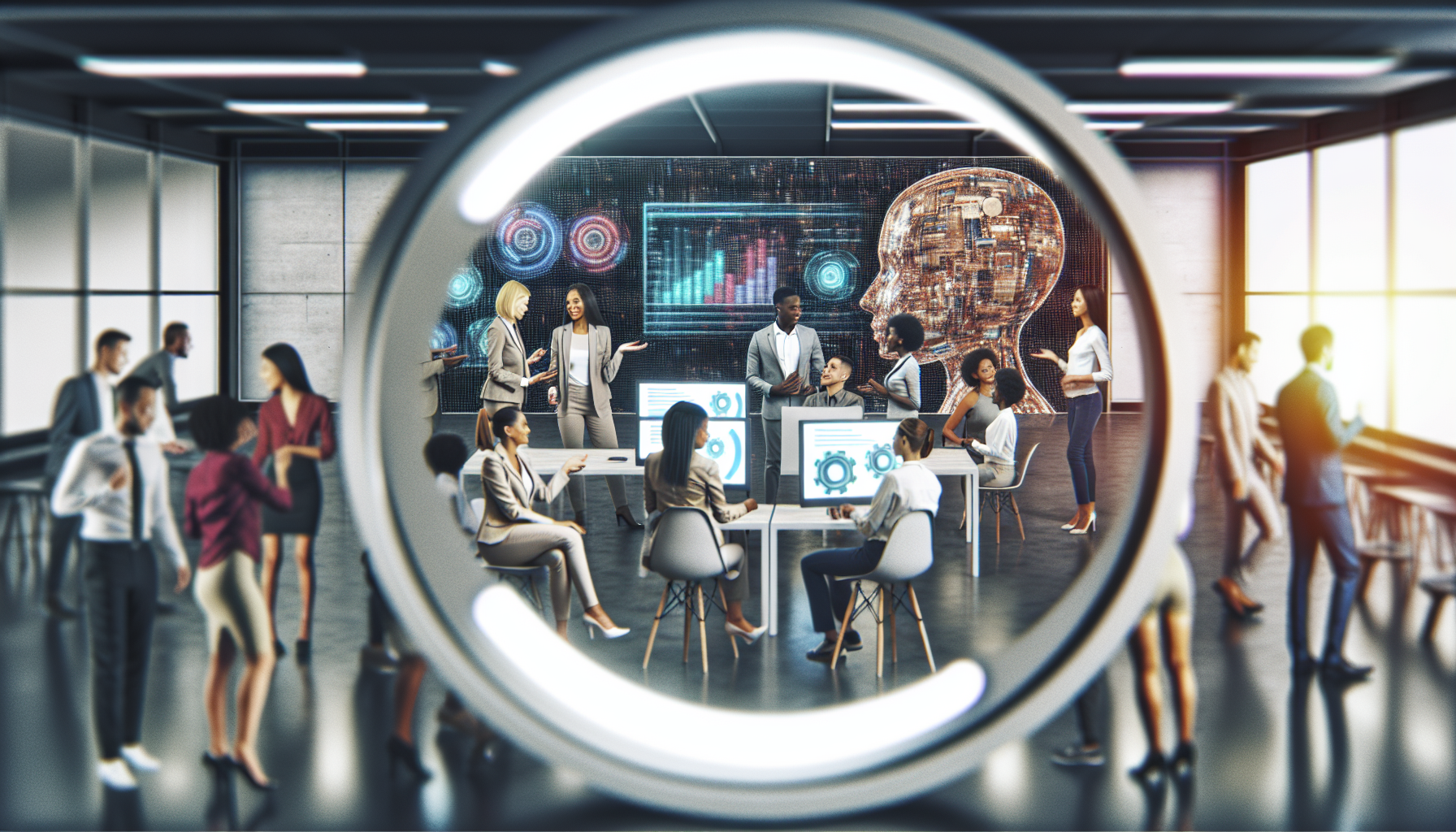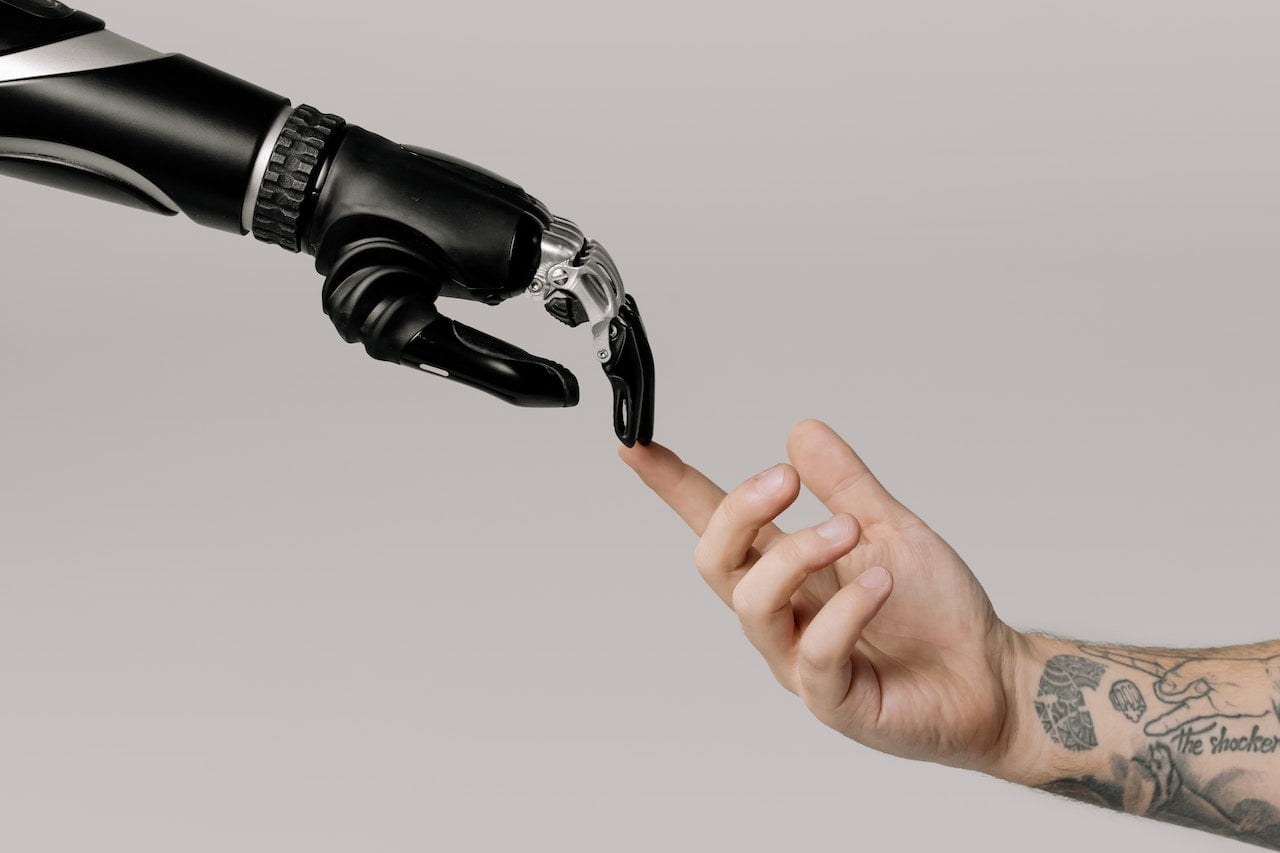The Current Landscape of AI Technology
As we delve deeper into generative AI, it becomes clear how this technology is revolutionizing content creation by synthesizing new outputs from existing data. Generative AI systems analyze vast datasets, allowing them to learn patterns and nuances that can be replicated or altered to create original works. For instance, in creative fields like art and music, AI tools can produce unique paintings or compose symphonies, marrying technology with human creativity.
A notable application of generative AI in business is data synthesis, where organizations utilize AI to generate synthetic datasets. This can help in training machine learning models, especially when real-world data is scarce or sensitive. Industries such as healthcare benefit significantly, as generative AI can simulate patient data without privacy concerns, aiding in research and development.
However, the rise of generative AI also raises ethical considerations and challenges. Issues surrounding authorship and ownership emerge, as does the potential for misuse in creating deepfakes or misleading information. It is imperative for creators and organizations to navigate these complexities, ensuring that the balance between innovative exploration and ethical responsibility is maintained as they usher in a new era of creativity.
Understanding Generative AI’s Role
Generative AI stands at the forefront of technological evolution, translating existing data into new content across various domains. Utilizing advanced algorithms and deep learning techniques, it generates text, images, and audio by identifying patterns, styles, and features in the input it receives. This capability has found profound applications in creative fields; artists leverage generative AI to produce unique visual art, while musicians explore AI-generated compositions that challenge traditional creativity.
In the business realm, generative AI plays a vital role in data synthesis, allowing companies to simulate scenarios, enhance product designs, and personalize customer experiences. By generating predictive models based on historical data, businesses can make informed decisions, ranging from marketing strategies to inventory management.
However, the rise of generative AI is not devoid of challenges and ethical considerations. The ease of creating convincing yet fabricated content raises concerns about misinformation and the potential for manipulation. Balancing creativity with responsibility becomes paramount, as it’s essential to address intellectual property rights and the implications of AI-generated content on human creativity. Thus, navigating the landscape of generative AI requires careful consideration of its power, limits, and societal impact.
Toward Artificial General Intelligence
Artificial General Intelligence (AGI) represents a significant leap in the evolution of artificial intelligence, aiming for machines that can perform any intellectual task that a human can. Unlike current narrow AI, which excels in specific areas such as image recognition or natural language processing, AGI seeks to achieve human-like reasoning and understanding across diverse domains. This shift from narrow AI to AGI suggests machines could not only analyze data but also comprehend context, form connections, and exhibit common sense.
The timeline for achieving AGI varies among experts, with predictions ranging from a decade to several decades away. The implications of widespread AGI adoption could radically transform sectors such as healthcare, where it could facilitate personalized medicine and improve diagnostics, or education, through tailored learning experiences that adapt to individual students’ needs. Additionally, in finance, AGI could enhance risk assessment and automate trading strategies with human-like insight.
While the potential benefits of AGI are immense, there are significant challenges, including ethical concerns about autonomy, job displacement, and the need for robust control mechanisms to ensure safety and alignment with human values.
The Emergence of Superintelligence
The concept of superintelligence encapsulates the idea of an intelligence that surpasses human cognitive abilities across virtually all domains, including creativity, problem-solving, and social intelligence. Theoretical frameworks, such as Nick Bostrom’s “intelligence explosion,” posit that once an AI reaches a level of general intelligence, it can iteratively improve its own capabilities at an exponential rate. This raises profound questions about the timeline for its emergence, with predictions ranging from singularity within a decade to a more gradual ascent over the next century.
However, the rise of superintelligence is laden with ethical and safety concerns. Issues related to control, such as the alignment problem, are paramount, as ensuring that superintelligent systems act in accordance with human values remains a significant challenge. Without robust control measures, the very technologies designed to enhance human welfare could pose existential risks.
On the promising side, if managed wisely, superintelligence could revolutionize society, offering solutions to complex global challenges like climate change, disease eradication, and resource distribution. The dual nature of superintelligence calls for a balanced discourse, urging the need for diligent oversight and ethical scrutiny as this powerful force begins to shape our future.
Speculative Scenarios for the Next Five Years
As we gaze into the evolving landscape of artificial intelligence over the next five years, several speculative scenarios emerge, painting a multifaceted picture. In an optimistic view, advances in generative AI could lead to significant breakthroughs in personalized education, healthcare, and creativity. AI could help develop tailored learning experiences, improve patient diagnoses, and unleash new forms of art and storytelling. Such developments might foster an environment of collaboration between humans and machines, propelling society forward.
Conversely, a pessimistic outlook highlights the risks of unchecked AI development. The potential emergence of artificial general intelligence (AGI) raises questions about accountability, as unregulated systems could exacerbate inequality, invade personal privacy, and manipulate information. Regulatory frameworks, under pressure from public concern and technological advancements, may struggle to keep pace, leading to a chaotic landscape where malicious actors exploit vulnerabilities.
Societal norms will evolve alongside these developments, with public trust in AI either bolstered by transparency or eroded by misuse. Investments in ethical AI governance and inclusive technological frameworks will be crucial, shaping the trajectory towards a future where AI enhances human existence rather than endangers it.
Implications for Society and the Workforce
As AI technologies continue to advance, their influence on the workforce and society will be profound and multifaceted. The job market is likely to experience significant disruption, with some roles becoming obsolete while new ones emerge, driven by the integration of AI. Jobs that involve routine and repetitive tasks, particularly in sectors such as manufacturing and data entry, face substantial risk of automation. Conversely, industries that harness AI for innovation, such as healthcare and renewable energy, may see a surge in demand for skilled professionals.
To thrive in an AI-dominated future, workers must adapt their skills. A shift towards critical thinking, emotional intelligence, and creativity will be essential, as these are areas where humans can excel beyond machines. Education systems will need to evolve, prioritizing STEM fields while also fostering soft skills and interdisciplinary approaches. Upskilling and reskilling programs will play a vital role in equipping the current workforce with necessary competencies.
While AI presents challenges, it also offers opportunities. Enhanced productivity and new job creation in tech-driven sectors could lead to economic growth. However, there remains a risk of deepening social inequalities if access to education and tech resources isn’t equitably distributed. Balancing these dynamics will be crucial as society navigates the complexities of an AI-integrated future.
Ethical Considerations in AI Evolution
The rapid evolution of artificial intelligence brings to the forefront pressing ethical considerations that must be addressed to avert potential societal pitfalls. One significant concern is bias in AI algorithms, which can perpetuate existing inequalities if not vigilantly monitored. Developers must recognize that training data often reflects societal prejudices, resulting in skewed outputs that can adversely affect marginalized groups. Consequently, establishing robust methodologies to identify and rectify bias is essential for equitable AI deployment.
Data privacy is another critical ethical issue, as AI systems often require vast amounts of personal data to function effectively. Individuals must be empowered to control their data, ensuring compliance with stringent privacy regulations. AI developers hold a moral responsibility to prioritize user consent and transparency in data handling practices.
Moreover, the moral responsibilities of AI developers extend beyond technical proficiency. They must engage in ongoing dialogues about the societal implications of their creations, cultivating an ethical framework that guides decision-making processes. To harness AI’s potential for good, it is imperative to establish comprehensive ethical guidelines that prioritize the welfare of society, ultimately ensuring that advancements in AI serve as a catalyst for positive, widespread benefit.
Preparing for an AI-Driven Future
As society stands on the brink of an AI-driven future, the imperative to prepare effectively becomes paramount. Individuals, organizations, and governments must engage in proactive steps to navigate this transformative landscape responsibly.
For individuals, fostering digital literacy and adaptability is crucial. Continuous learning will empower them to thrive in an environment increasingly shaped by AI technologies. Engaging in online courses and workshops dedicated to AI fundamentals can demystify this complex field and help in identifying opportunities across various sectors.
Organizations should prioritize collaborative approaches. By integrating interdisciplinary teams that include both technologists and ethicists, firms can create AI solutions that are not only innovative but also socially responsible. Furthermore, investing in R&D enables businesses to lead in ethical AI development.
Governments play a pivotal role through proactive legislation that establishes clear frameworks around data privacy, security, and AI accountability. Such structures should be designed through consensus, incorporating diverse stakeholder perspectives to reflect society’s needs.
Finally, cultivating public awareness and engagement is essential. Open forums, educational initiatives, and partnerships between academia and industry can facilitate informed dialogue, helping citizens participate actively in shaping AI policies that prioritize collective welfare. Engaging the public ensures that advancements benefit all sections of society, steering towards a future where technology and humanity coexist harmoniously.
Conclusions
As artificial intelligence continues to evolve, understanding its trajectory becomes crucial. From generative AI to the possibilities of superintelligence, our preparedness will define the impact of these technologies on our lives. By fostering ethical practices and proactive engagement, we can harness AI’s potential while mitigating its risks.










